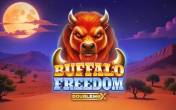_770.jpg)
Daily fantasy sports are a new, widespread phenomenon in the United States. Finally, the dream of all those sports fans who know everything about their favorite teams better than the coach has come true.
In daily fantasy sports, each participant becomes a manager and assembles a "dream team" of real professional athletes.
All kinds of sports are available in daily fantasy:
- American football,
- baseball,
- basketball,
- golf,
- soccer,
- hockey,
- and even e-sports.
Since the 1960s, users have been playing fantasy sports mainly for entertainment. Nowadays, daily fantasy sports are a multi-billion dollar business and popular online games played by every tenth U.S. citizen.
Gamblers in Europe are less acquainted with these online games, although a fantasy football community that contains 60 thousand people has been operating on Sports.ru since 2009. Europe and Russia have become familiar with fantasy sports in recent years: articles devoted to this topic are published, several draft rooms appear, and daily fantasy sports sites are developing.
However, fantasy sports have not yet become popular among the audience.
What Are the Principles for Fantasy Sports?
Fantasy sports were utterly different and had much slower dynamics in 2006.
- Participants assembled their teams and paid their entry fees once per whole season.
- Then, they managed them like real football or basketball teams, and only at the end of the season did the best managers win money.
- Daily fantasy sports have become much more popular than traditional sports played throughout the entire season.
The article is mainly devoted to this format.
How Can You Participate in Fantasy Sports?
The procedure is relatively simple:
- You register on the website that provides services.
- Then you select a suitable kind of sport and a round of the championship where you want to play.
- Then you receive a conditional amount, usually equal to $100 million, which can be used to buy players. You can choose from all the players of all the teams participating in this round. To be sure, top players are more expensive, so you need to select a balanced team and not exceed your budget.
- All players are awarded points for a list of actions while playing: goals, saves, yellow cards, assists, etc.
The gameplay is automatic. You can see a player's score in the photo. Points are counted in the same way for other players.
Then points of all players are added together, and if players of your team gain more points than the opponent's players, you will win the tournament.
Where to Play Fantasy Sports
Unfortunately, the American market leaders, FanDuel and DraftKings, operate only with U.S. and Canadian residents. However, their owners are considering expanding to the European market: DraftKings has already received a license in the United Kingdom, and an application for FanDuel is being processed.
Yet, there are sites for residents of other countries:
- fantasybet.com
- fanaments.com
- fanteam.com.
- zweeler.com
- draftgaming.com.
They will be described a little bit later.
Which Fantasy Sports Tournaments Are Available?
Those who have already played poker will immediately notice the similarity between draft and poker rooms. You can find a suitable game in the lobby that looks the same.
There are the following types of tournaments:
- Freerolls: These are free tournaments with prize pools.
- Regular tournaments: Players should deposit a certain sum to participate in them. It may be equal to 1 or even $100. The prize pool is composed of such entry fees. After the end of the tournament, this amount is distributed between winners. The tournament rules determine their number.
- All for the Winner: This kind of tournament is similar to a competition described in the second paragraph, but one winner will obtain the prize pool.
- Guaranteed tournaments are similar to a competition described in the second paragraph, but an additional organizer offers a guaranteed prize pool.
- Heads-Up: Two players make bets. The total sum belongs to the winner.
- Double-Up: Half of the participants may win by doubling their bets.
- Triple-Up: One-third of the participants may win by increasing their bets three times.
- Multi-entry: A player can select more than 1 team (as usually, up to 10) by paying the corresponding number of buy-ins.
- Flash Mode: It is a tournament with a limited time. Users have 3 minutes to assemble a team after registration. If you fail, players will be selected automatically.
- No Captain is a tournament that doesn't require selecting a captain among players.
- Non-Standard Budget has a non-standard budget for purchasing players for a draft room.
- Season Long is an excellent old seasonal tournament played before the appearance of daily tournaments.
- Pick 'em is a tournament that requires users to predict outcomes and point spreads of matches.
DFS vs. Poker
Many regular poker players treat DFS as a new poker, noting its similarity to this game. They give up playing poker and select fantasy sports. What are their common features?
- You should play against other participants in both poker and DFS instead of competing against the house, as it happens at casinos or betting offices.
- The operator takes a rake in both poker and DFS.
- The arrangement is similar in poker and DFS: similar lobbies with the same tournaments, satellite tournaments, and heads-ups.
- The structure of payouts in DFS tournaments is similar to that in multi-table tournaments.
- Users should spend a lot of time mastering strategies for both DFS and poker.
- Both poker and DFS are based on skills with a particular share of luck.
- Both in poker and DFS, dispersion affects outcomes over the short run. Even novice players can win, but only the best gamblers may win in the long run.
- Both poker and DFS attract the same type of players: mathematicians and fans of analytics and strategies.
- Both poker and DFS provide players with fun, excitement, and adrenaline.
Poker and fantasy sports are very similar, and if you have played poker, you should try to play DFS. You will enjoy it! Take Aaron "Aejones" Jones as an example. In January, he earned $5 million in the DraftKings Fantasy Football World Championship.
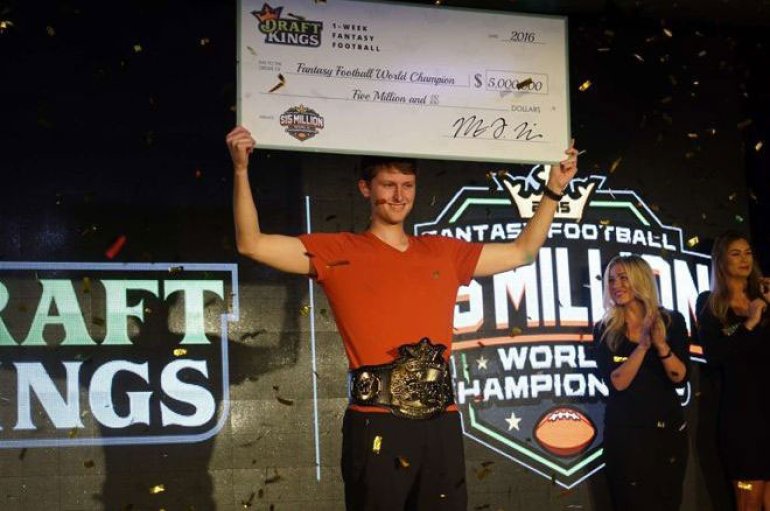
History and Evolution of Fantasy Sports
Fantasy sports date back to 1962, when sociology professor Wilfred "Bill" Winkenbach from Oakland organized Baseball Seminars. Participants assembled teams of real players. In March 1962, at the Milford Plaza Hotel in New York City, Bill Winkenbach, along with Bill Tunnel, who was responsible for public relations at the Oakland Raiders, and Oakland Tribune journalist Scotty Stirling, developed a system of organization and rules that served as the basis of modern fantasy sports.
They created the first fantasy football league in history and called it the Greater Oakland Professional Pigskin Prognosticators League (GOPPPL).
The popularity of fantasy sports has slowly grown over the years. The second wind of this game was observed in 1980 when the editor Daniel Okrent updated the rules and organized the Rotisserie League Baseball. He had many friends who were journalists, and they appreciated this game and began to popularize it.
In July 1980, the New York Times published an article about fantasy sports, and soon a weekly column dedicated to this game appeared. Later, Dan Okrent wrote:
I feel the way that J. Robert Oppenheimer felt having invented the atomic bomb...
Initially, the number of fantasy sports fans grew insignificantly: 500 thousand people by 1988. It reached three million in 1994. This is unsurprising: the manual calculation of statistics and gameplay by correspondence could attract only true fans. The competition lasted the whole season, and the prizes that could be won were very modest ($50 or T-shirts of famous athletes).

The Internet boom of the 1990s revolutionized the game.
- Commissioner.com appeared in 1997. It allowed gamers to update data in real-time mode, detailed statistics, and a system of leagues with limited access and their chat platforms.
- The Internet giant Yahoo entered the market in 1999 and created a fantasy sports system that could be used for free. This was unusual since other fantasy sports leagues were spending costs associated with the game and, therefore, were charging fees from players for the use of their functionality.
- The Fantasy Sports Trade Association (FSTA) was founded in the same year.
Over 12 million people played fantasy sports in 2006. An event that fundamentally impacted the game took place that year.
The famous UIGEA law that banned online gambling was adopted in the United States. This law made online poker illegal. Fantasy sports were also in the sphere of interest of this act, but they were not banned because legislators treated fantasy sports as games where skills were needed.
It was a massive victory for fantasy sports.
FanDuel was founded in 2009, and DraftKings appeared in 2013. Nowadays, they are considered to be the leaders of the fantasy sports industry. DraftKings's appearance in the emerging market led to unprecedented growth of the advanced form of fantasy sports called daily fantasy sports (DFS). Due to its aggressive marketing of DFS, DraftKings became the second-leading company on the market.
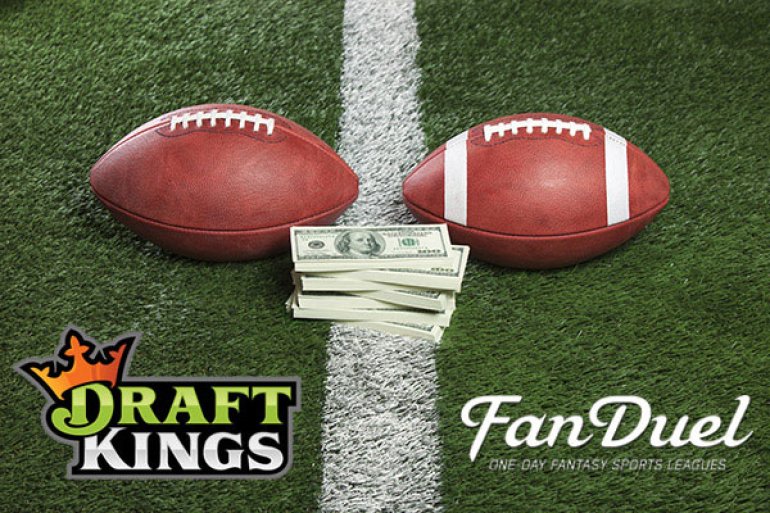
It is necessary to explain the difference between fantasy and daily fantasy sports. Daily fantasy sports are an accelerated version of traditional fantasy sports.
- DFS competitions are short-term. They last a week, one day, or even have only one round.
- On the contrary, fantasy sports competitions last for an entire season.
The popularity of the daily fantasy format was explained by its convenience and speed and its focus on cash prizes.
Over 21 million people played fantasy sports in 2013. That year Travis "TSpiedo" Spieth was the first one to earn one million in daily fantasy sports. He was a former professional poker player who won the FanDuel FFFC Tournament with a guaranteed prize pool of $1,000,000.
Fantasy sports are currently flourishing. American football and basketball used to be the most popular types of fantasy sports. You can create your team in any kind of sport you can imagine, starting with golf and ending with soccer. Fantasy sports used to be an innocent hobby for sports fans, but they have become a billion-dollar industry.
The Current State of the Fantasy Sports Industry
Two Internet startups - FanDuel and DraftKings – have formed an entire industry worth billions of dollars from a bizarre hobby for sports fans over the last six years. Their efforts have made fantasy sports the most popular online game in North America. The following reasons contributed to the explosive growth of daily fantasy sports:
- Detailed sports statistics have appeared on the Internet. All actions of athletes are taken into consideration.
- Daily fantasy sports may be an alternative to sports betting and poker, which are banned in the United States.
- Broadcasts and winnings that may reach millions of dollars and can be received by winners of fantasy sports competitions are available.
- Fantasy sports can entertain people and bring them positive emotions while watching sporting events.
According to the FSTA, over 56 million people play fantasy sports in the United States and Canada nowadays. Each player spends, on average, 456 dollars per year on his or her hobby.
The fantasy sports market in 2015 was estimated at 3-4 billion dollars. There are dozens of fantasy sports operators in North America.
About 95 percent of the market is occupied by two current leaders - FanDuel and DraftKings.
Fantasy Aces, Fantasy Feud, DraftDay, Yahoo, and Victiv purchased by owners of PokerStars Amaya and renamed DraftStars, are competing to become the third-leading company.
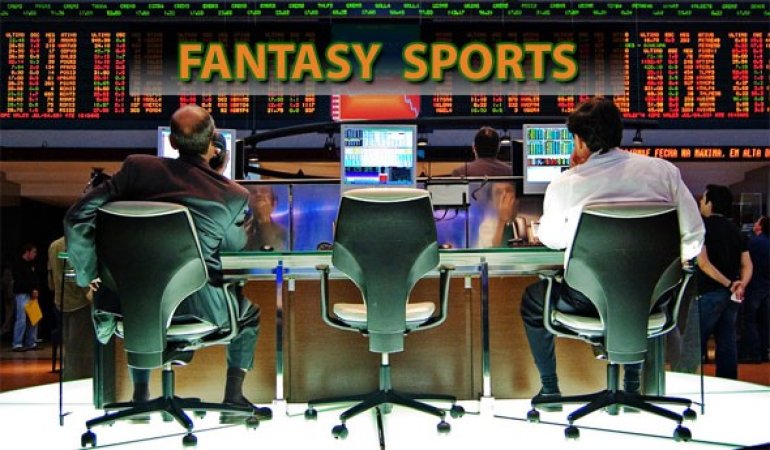
Fantasy sports are still unknown in Russia and Europe, and draft rooms only started to appear last year. However, the situation for their growth is more favorable. Many European countries have officially recognized daily fantasy sports as legal activities and issued licenses to various DFS operators.
In Poland and Germany, daily fantasy sports are considered entertainment, so they are not treated as gambling games that require licensing. The status of daily fantasy sports is not defined in Russia and other post-Soviet countries. It seems that soon, they will not pay attention to DFS. Currently, only one Russian website offers DFS to play for money, but this is not enough to attract the attention of the authorities.
In short, the European fantasy sports market is growing but still at a very low level.
Do Fantasy Sports Depend on Luck or Skills?
In the United States, the fantasy sports business has gained such momentum over the last few years that it has already attracted the attention of the FBI. In October of the previous year, the FBI launched an investigation concerning whether fantasy sports are illegal gambling.
State attorney generals did not want to wait for the FBI investigation's results: Nevada, Illinois, and New York banned DFS altogether. Fans of fantasy sports did not like this, and the current New York Attorney General, Eric Schneiderman, was under siege in November. Protesters periodically gather in front of his official residence in Manhattan with posters like "Schneiderman, think about the real problems" or "It's all in your imagination!"
Florida takes a more pragmatic approach. Its authorities decided to treat fantasy sports as legal activities but required operators to pay a half-million-dollar license fee.
The central question is whether fantasy sports are games of luck or skill. Those who have already won (for example, Saahil Sud, who earned $3.5 million in the last year) believe that they have proven that fantasy sports are not games of luck.
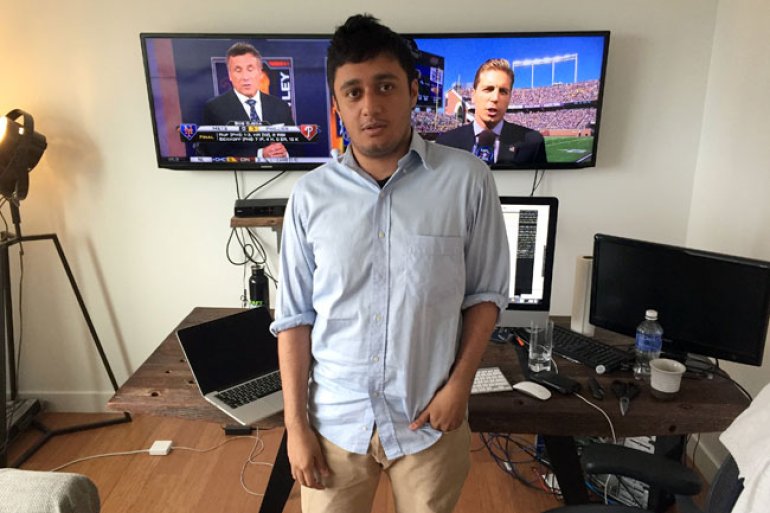
Saahil Sud, a 27-year-old mathematician, developed his program based on statistics from recent games, weather forecasts, and information about violations. This strategy allows him to assemble the best combination of players for each game day.
Thousands of professional players like Saahil Sud win because they use strictly analytical methods and don't rely on luck. There are a lot of former professional online poker players among the best fantasy sports players since online poker is banned in the United States. They just changed the game.
If you read interviews with the most famous fantasy sports players, you will always see a similar story: they are economists, mathematicians, accountants, and business psychologists. They elaborated on their complex statistical models that ordinary players cannot make.
This is confirmed by the consulting firm McKinsey which studied outcomes of fantasy sports in the first half of 2015. It showed that 91 percent of profit over this period was received only by 1.3 percent of players. Daily fantasy sports are more similar to the stock exchange market in which athletes are bought instead of shares since there are minimum chances to win without the necessary skills.
























